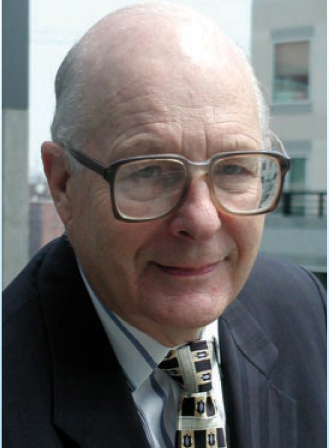Neureiter Is Director of AAAS Security Policy Center
DOI: 10.1063/1.1784299
Less than a year after leaving his post as science adviser to US Secretary of State Colin Powell, Norman Neureiter has accepted the job as the first director of the new Center for Science, Technology and Security Policy at the American Association for the Advancement of Science. The center, funded with a three-year, $2.2 million John D. and Catherine T. MacArthur Foundation grant, is to serve as “a smart, two-way portal” between research institutions and the federal policymakers involved in national security issues, Neureiter said.
The center is intended to be the point of contact for Congress and the executive branch to a group of new university-based antiterrorism research centers being established by a $50 million MacArthur Foundation initiative (see Physics Today, March 2003, page 26
The center will respond quickly to requests for scientific information from anywhere in the federal government, Neureiter said, and will host seminars and other events to create more awareness and a better understanding of the security research being done at the MacArthur centers and elsewhere. “The idea is to stimulate thinking on both sides.”
Alan Leshner, chief executive officer of AAAS, said there is “great interest on [Capitol] Hill in getting science information, but [legislators] need to have it in a form in which they can best use it. So it really is a task of synthesis and putting information into an easy-to-manage form that is … responsive to the very specific questions that policymakers need answered.”
Leshner described the AAAS center as “one-stop shopping” for policymakers needing scientific data on security issues related to antiterrorism. “What [policymakers] want is a short briefing paper, a face-to-face briefing, or often just a phone call to answer their questions.” They will be able to call the center “rather than trying to find all of the relevant expertise themselves,” he said.
The MacArthur Foundation’s broader science, technology, and security initiative includes research money for studies on chemical weapons control, nuclear weapons security issues, ballistic missile defense, nuclear smuggling, and other security concerns. The foundation is funding security-related research at nine universities and the creation of 10 tenured faculty positions and more than 100 positions for mid-career scientists and postdoctoral students conducting international security research. The initiative also includes funding for the education of security analysts in China, Russia, and the UK.
Neureiter, a Fulbright scholar, earned a PhD in organic chemistry from Northwestern University in 1957, then joined the foreign service as a science attaché in Eastern Europe. He was vice president of Texas Instruments, Asia, before moving to the State Department in 2000.

Neureiter
AAAS





